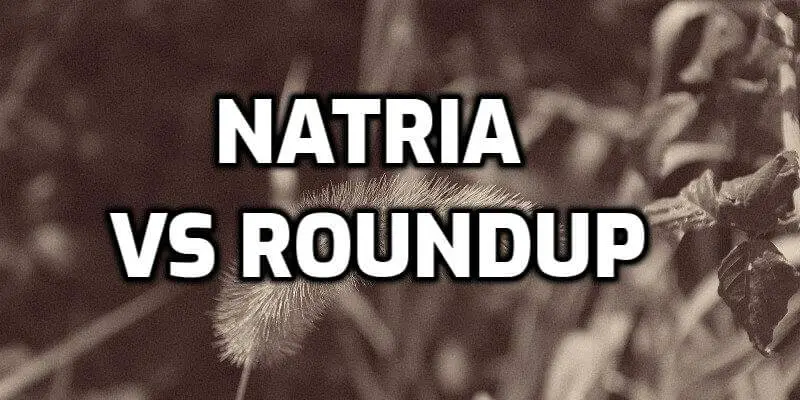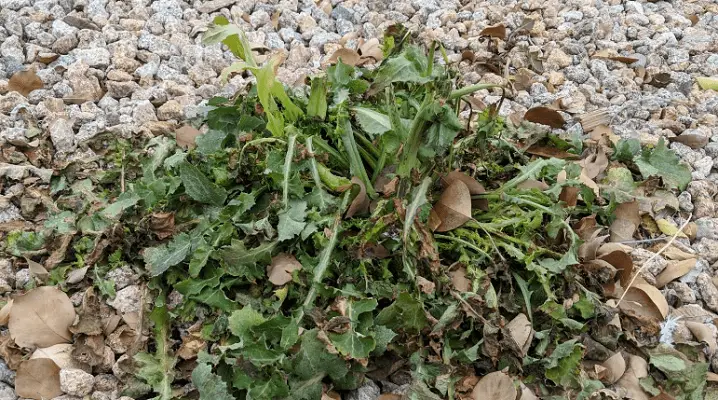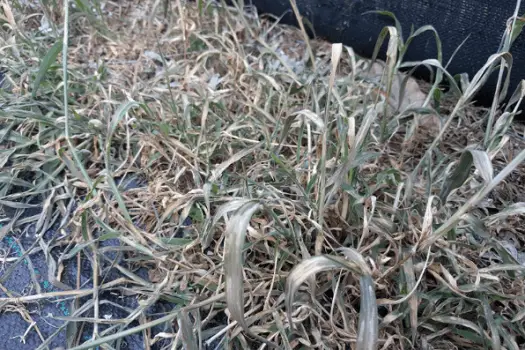Natria vs Roundup Weed Killer

For garden enthusiasts and homeowners, weeds can pose a constant battle. Maintaining a weed-free outdoor space is challenging, particularly with the numerous weed-killer products available on the market.
Two major contenders, Roundup Weed & Grass Killer and NATRIA Grass and Weed Control, often come into focus. But how do these two popular weed killers stack up? Let’s delve into a comprehensive comparison of these products.
Natria Vs Roundup Table
In this table, we will look at material and roundup weed killers. We’ll discuss how each product works and its benefits and drawbacks.
Natria | Roundup |
Active Ingredients Ammoniated soap of fatty acids. | Active ingedients 2% Glyphosate, 2% Pelargonic acid and related fatty acids. |
Visual Results In As Little As 24 Hours | Visible results in as soon as 3 hours. |
Exclusive Formula Kills To The Root Within Minutes | Kills Weeds To The Root So They Wont Come Back. Additionally, this product comes with a money-back guarantee. |
1 Gallon Can Treats Up To 450 Square Feet | Simply spray the leaves of the weeds you want to kill until they're thoroughly wet. |
Safe For Pets And Children After It Dried | People & Pets Safe After Spray Has Dried |
It Kills Listed Weeds And Grasses Including Crabgrass, Posion Ivy, Clover, And More | Kill Any Type of Toughest Weeds And Grasses Down To The Root |
Can be used any time of the year, but works best during warm and dry conditions when the soil is moist. | For best results, apply the product when the weeds are actively growing. |
Suitable for use on various surfaces such as flower beds, driveways, sidewalks, stepping stones, patios, etc. It will not stain bricks, concrete, or asphalt. | Use in and around vegetable gardens, flower beds, tree rings and mulched beds, as well as on cracks in driveways, walkways and patios |
Active Ingredients
The primary active ingredients in these weed killers are notably different. Roundup’s key components are 2% Glyphosate and 2% Pelargonic acid, and related fatty acids. Contrastingly, Natria Grass and Weed Control contain 3.68% Ammoniated soap of fatty acids and 0.50% Maleic hydrazide.
Mode of Action
Both products employ unique modes of action to eliminate weeds. Natria leverages its ammoniated soap, functioning like a high-strength detergent, breaking down cell walls and drying out plant tissues. Additionally, its Maleic hydrazide disrupts plant chromosomes, halting root growth and leading to its demise.
Conversely, Roundup relies on Glyphosate that enters plants through their leaves, obstructing their ability to synthesize essential amino acids. This prevents the plant from creating new cells, effectively causing its death.

Effectiveness
Regarding efficacy, both Natria and Roundup are non-selective herbicides capable of tackling a wide variety of plant species. They excel when applied to grasses and common weeds. However, larger vines, woody plants, and shrubs might necessitate repeat applications for complete eradication.
Fast Result
For those seeking quick results, both weed killers perform admirably. Roundup is rainproof in a mere 10 minutes and delivers visible results in as little as 3 hours. Meanwhile, Natria begins to show effects within 24 hours, offering a slightly longer but still efficient timeline.
Where to Use
Roundup Weed & Grass Killer is perfect for use in and around vegetable gardens, flower beds, tree rings, and mulched beds. It’s also effective on cracks in driveways, walkways, and patios.
Natria, on the other hand, can be utilized on various surfaces like flower beds, driveways, sidewalks, stepping stones, and patios without staining bricks, concrete, or asphalt.

How to Use
The application is straightforward for both products. Simply spray the leaves of the weeds you want to kill until they’re thoroughly wet.
When spot-treating weeds in a flower garden, shield the plants you want to keep from drifting with a piece of cardboard or plastic. If you accidentally spray a plant you wish to keep, rinse it off immediately with water.
What it Kills
Natria weed killer kills unwanted weeds and grasses, roots, and all. It will kill Annual Bluegrass, Common Chickweed, Corn Spurry, Dandelion, Large Crabgrass, Mouse-Eared Chickweed, Mustard species, Plantain species Redroot Pigweed Round-Leaved Mallow Sheep Sorrel Moss Algae. Although it is a non-selective killer, it may kill the grass or young plant if you spray it on it. Only Apply the area where you want to treat.
Roundup Weed and Grass Killer Concentrate Plus are suitable for use around flowers, shrubs and trees, patios, walkways, driveways, gravel areas, and mulch beds. It is also good to use along fences or edging. It can kill Barnyardgrass, Crabgrass (southern), Foxtail (giant), Goosegrass, Nimblewill, Signalgrass (broadleaf), Crabgrass (large), Cupgrass (wooly), Foxtail (green), and more.
Our Observation
In terms of effectiveness, both Roundup and Natria perform admirably and offer comparable results. The choice between the two largely depends on the user’s specific needs.
Roundup provides faster results, killing weeds in as little as three hours, making it an ideal choice for those seeking quick action. Additionally, Roundup’s guarantee of a refund if users are unsatisfied offers an added layer of confidence.
Natria, on the other hand, could be a more attractive option for those seeking a formula containing soap of fatty acids, which has a lesser environmental impact than Glyphosate. Moreover, Natria won’t stain hard surfaces, making it a safer bet for use on patios, driveways, and sidewalks.
In conclusion, both products serve their purpose efficiently. Your choice will depend on your specific needs, environmental concerns, and desired speed of results.

James E. Butkovich, Pest control maven with a knack for eco-friendly & Chemical solutions. Blogger with a mission to make homes pest-free, one post at a time.

